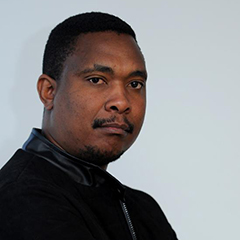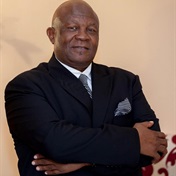
Tumelo Masoanganye (22) is struggling to pursue his studies at Unisa this year due to a lack of funds. He owes the university R23 350 for tuition and has been unable to buy books and a laptop.
His predicament follows government’s decision to cancel funding for postgraduate accounting diploma students, which he sees as an added exclusionary measure for poor students in an already discriminatory sector.
The overall impact of this decision, Masoanganye says, might be that most students with an accounting diploma will struggle to become chartered accountants (CAs) as they need to pass the postgraduate diploma first to qualify to write SA Institute of Chartered Accountants exams.
Masoanganye says this is in addition to restrictive job requirements at private firms, including that graduates be multilingual and own a car.
All these hurdles are despite the National Development Plan Vision 2030 listing accounting as a scarce skill.
READ: How SA’s social security net changed our lives
In March, Higher Education, Science and Innovation Minister Blade Nzimande announced that the likes of Masoanganye would no longer be funded by the National Student Financial Aid Scheme (Nsfas), but by the National Research Foundation (NRF), the intermediary agency between the policies and strategies of government and research institutions.
Nzimande said Nsfas funding would only apply to students doing their first undergraduate qualification.
“In the past, however, Nsfas has provided funding for some limited second qualifications in key areas. Students who are already funded on those programmes will be able to continue as long as they meet the academic criteria. However, there will be no funding available for new entrants on second or postgraduate qualifications, as the latter is the responsibility of the NRF,” Nzimande said at the time.
However, City Press has learnt that the NRF postgraduate funding policy excludes these students.
According to the policy, undergraduate qualifications, postgraduate certificates and diplomas, as well as professional master’s and doctoral degrees, regardless of their national qualification framework exit level, are not funded.
Nzimande’s office had not responded to questions by the time of going to print.
A STUDENT IN CRISIS
Masoanganye, who lives with five family members in his home in Soshanguve, Pretoria, says the family depends on his grandmother’s social grant.
“My younger sister completed Grade 12 last year. My older sister is unemployed. My father got arrested before I did Grade R, leaving my mother to take care of us as a single mother. My father was only released from prison when I was doing Grade 11 in 2015.
Even after being released from prison, he still had to serve his remaining sentence under house arrest, which means he cannot leave home and must still be under supervision of correctional services. He cannot get a job to this day because he has a criminal record,” he said.
His mother, who was a cleaner, passed away in 2018 when Masoanganye was a second-year student at the University of Zululand. She was unemployed at the time of her passing.
Masoanganye says he was always a top-10 performer during his high school days at Boepathutse Junior Secondary School and Lethabong High School.
“I got good grades in Grade 12 and I got a Thuthuka bursary to fund my undergraduate studies...
“I wouldn’t have got this far if it weren’t for the support of my secondary and high school teachers. My high school teachers have been supporting and motivating me throughout the years.”
READ: 20 Unisa postgraduate students charged with plagiarism still in the dark about way forward
He said their support helped him in his mission to become a CA, and also to “inspire other students that it is possible to succeed in life despite the rough patches, trials and tribulations one might have to go through in his/her journey to success”.
“I also want to thank [the Thuthuka Bursary programme] for funding me during my undergraduate studies. I need a bursary or trainee contract so that I can further my studies and help cut the cycle of poverty in my family,” he said.
DISCRIMINATION AND EXCLUSION
Masoanganye is of the view that the system is rigged to exclude poor students.
“I want the whole world to be aware of this. In 2021, 27 years into our democracy, we still have firms/training offices that want students to be fully bilingual, meaning they want you to know both Afrikaans and English.
“And how can you expect poor students to have their own vehicles because most of them don’t inherit any money from their parents?
“Most of us are the first to get a university degree and we are trying to break the cycle of poverty. Such requirements are unfairly discriminatory. Requiring new graduates to have their own vehicle is discriminatory and exclusionary. This requirement makes it difficult for students from previously disadvantaged backgrounds to find SA Institute of Chartered Accountant trainee articles,” he said.
NATIONAL RESEARCH FOUNDATION POSITION
NRF spokesperson Candice Molefe said their policy was informed by their mandate to support, promote and advance scientific research that contributes to national development.
“This requires requisite support for the researcher pipeline from postgraduate students to established researchers.
“In fulfilling our mandate, the NRF does not support undergraduate students and non-research-based postgraduate qualifications as defined by the Higher Education Qualifications Sub-Framework, such as postgraduate diplomas, advanced diplomas and MBAs,” Molefe said.
She said the NRF currently funded a little less than 5% of the total postgraduate enrolments at public universities.
“The limited resources are directed at supporting the researcher pipeline for research-based postgraduate qualifications.”
| ||||||||||||||||||||||||||||||
 |




 Publications
Publications
 Partners
Partners










